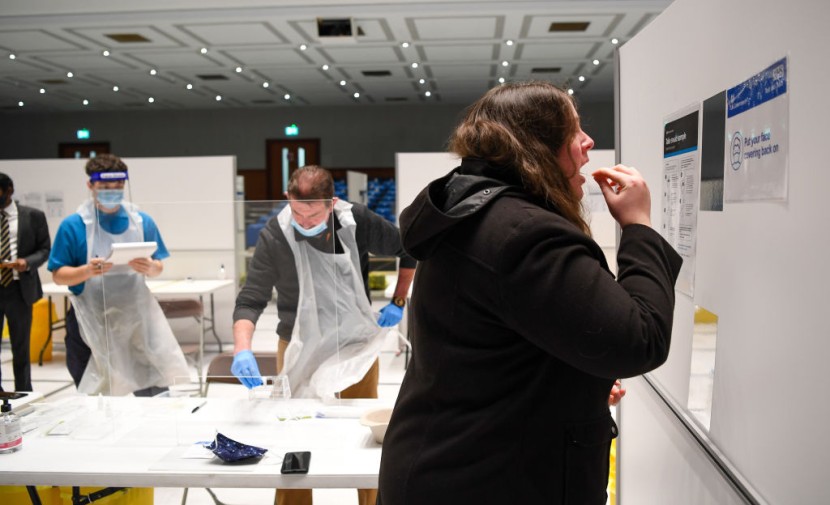It's normal to think whether you had COVID-19 without realizing it if you had a 'bad cold' this winter or just suffered from a cough that wouldn't go down. This is particularly valid now that infectious disease researchers agree the pandemic was still circulating when cities decided to shut down and introduce social distancing initiatives.
Fauci: After being infected with COVID-19, new signs may occur

Is it possible that you had Covid-19 without realizing it? "Many patients who have coronavirus have a basic fever that may be mistaken for a cold or influenza," says infectious disease specialist Amesh A. Adalja, senior scholar at the Johns Hopkins Center for Health Protection. Furthermore, some patients show no signs at all - up to 40% of diseases are asymptomatic, according to reports, as per Esquire via MSN.
Read also: J&J's Single-Dose COVID Vaccine Receives FDA Advisers Backing
This week was a turning point for those who contracted COVID-19 and are now enduring the effects months, if not years, later. Dr. Anthony Fauci, the president's chief medical adviser and head of the National Institute of Allergy and Infectious Diseases, reported that $1.15 billion would be spent investigating the problem, which he now refers to as "post-acute complications of SARS-CoV-2 infection" (or PASC). "After the virus has been largely removed from the body, new signs may occur long after the period of diagnosis or develop over time, and they may persist for months, varying from slightly irritating to fully incapacitating."
Read also: How Long To Get the Second COVID-19 Vaccine Amid Delays of Distribution Due To Winter Storm
Sure signs that you had COVID-19
Unfortunately, there's no way to tell for sure if the infection you had last winter was COVID-19 or if you picked up an asymptomatic disease at any stage. However, certain symptoms may suggest that you have already had COVID-19, according to experts. Here are the most important ones to be aware of, according to EatThis:
- Losing sense of taste or smell
Dr. Fauci said many people have a loss of smell and taste when infected with COVID-19. This loss of senses is often the most significant symptom of getting COVID-19 and for some, it never comes back. Meanwhile, Dr. Deborah Lee noted that ENT experts are still unsure if the loss of taste and smell occurs as the COID-19 virus damages the olfactory nerve directly, or if it is due to nasal inflammation and obstruction.
- Feeling fatigued
Dr. Fauci warns of "extreme exhaustion" during PASC, citing a University of Washington study, published in JAMA, that showed more than 30% of people with PASC had symptoms, with fatigue being the most frequent. The authors wrote, "Fatigue was the most frequently identified symptom, consistent with current literature." It's close to Chronic Fatigue Syndrome (CFS), also known as myalgic encephalomyelitis, which has no remedy.
- Shortness of breath
Even a mild case of COVID-19 can cause lung damage, which can result in long-term shortness of breath, which is another sign of anxiety. It's just one in a slew of disturbing signs. Dr. Fauci said, "We know for a fact that there is a post-COVID syndrome." "Anywhere from 25% to 35%-or more-have lingering effects that go beyond what you'd assume from post-viral syndrome-like influenza or others. It's fatigue, shortness of breath, body aches, dysautonomia, and so on..."
- Sleep disorders
Long haulers have complained of headaches, disturbing hallucinations, nightmares, and restless leg syndrome. The infection can damage the body's nervous system, making a typical night's sleep unlikely. Aches and pains can also make it difficult to sleep, as per EatThis.
- Fevers or temperature fluctuations
With post-acute sequelae of SARS-CoV-2 infection (PASC), you can catch a fever, then lose it, just to have it return. Scientists theorize that your body may be actively battling an infection, even though the virus has already left the body. Chills can also arise as a result of this.
Read also: Life Expectancy Drops by a Year, While 20 Million Years Are Lost Due To COVID-19, Study Claims








